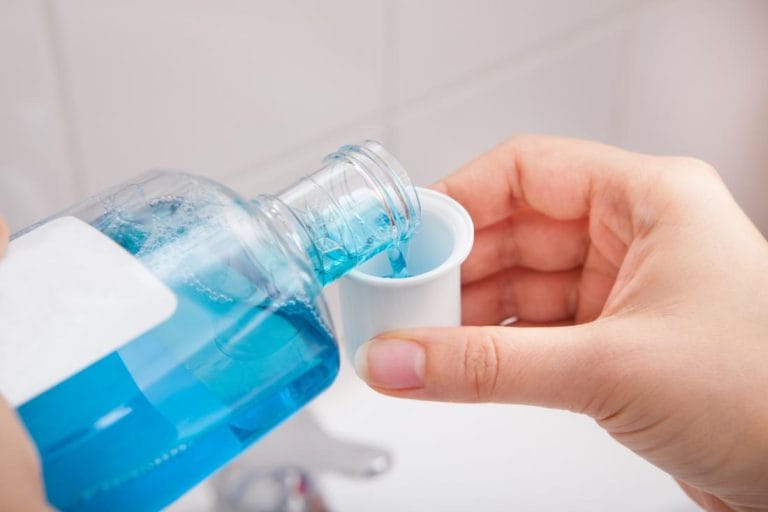Bad breath, also known as halitosis, is a common condition resulting from poor oral hygiene or underlying medical conditions. It occurs when bacteria in the mouth break down food particles and produce foul-smelling gases.
Addressing bad breath is essential not only for social interactions but also for oral health. Although bad breath is not a medical emergency, it can indicate underlying medical conditions that must be diagnosed and treated immediately.
What Does Bad Breath Smell Like?
Bad breath can have a range of smells, from musty or sour to putrid or metallic. The metallic smell is usually from sulfur compounds produced by bacteria. In particular, hydrogen sulfide, also known as rotten egg odour.
In some rare cases, the odor is sweet, indicating the presence of ketones. The sweet smell may also indicate an infection called parakeratosis, which viral diseases, alcohol consumption, or hormonal imbalances can cause.
When bad breath is on its own, it is usually mild and may go unnoticed. However, when it combines with other smells inside the mouth, such as dental cavities or gum disease, it may be more noticeable and problematic.
Some other symptoms that go along with bad breath include dry mouth, tooth and gum pain, bleeding gums, and lesions in the mouth. If you experience any of these symptoms, it is recommended that you consult your dentist to control bacterial growth and infection.
What Causes Bad Breath?
Poor Dental Hygiene
Food particles in the mouth provide a breeding ground for bacteria to grow and multiply. These bacteria then release sulfur compounds, which produce an unpleasant odor.
Additionally, if plaque buildup is not removed through brushing and flossing, it can harden into tartar, which can cause gum disease and further contribute to bad breath.
Sometimes, bad breath is caused by something as simple as dry mouth, which can be treated through better oral hygiene and a constant water supply.
Poor Diet
Onions and garlic contain sulfites that create a distinct odor when chewed. Even after the smell is gone, sulfur compounds remain in the mouth for up to ten hours, contributing to bad breath.
Bad breath can also be caused by consuming red meat, which tends to leave behind a metallic saliva odor that stays in the mouth for hours.
Bacon and eggs also contribute to bad breath because they create sulfur compounds when they break down in the body. Foods high in protein and carbohydrates can also be problematic since they may stick to the teeth and get fermented by bacteria into unpleasant-smelling gases.
Medical Conditions
Some conditions that may cause bad breath include respiratory infections, sinusitis, tonsil stones, and acid reflux. These conditions cause bad breath by allowing bacteria to grow in the mouth and throat.
In addition, liver disease and diabetes can cause bad breath due to the buildup of toxins in the body. Certain medications, such as those used for high blood pressure, can also cause dry mouth, leading to bad breath.
Cancer and other serious illnesses can also cause bad breath due to the breakdown of tissues and cells in the body.
Lifestyle Factors
Smoking and alcohol cause bad breath by drying out the mouth and allowing bacteria to grow. Smoking also leaves a distinct odor lingering in the mouth and lungs. Illicit drug use, even marijuana, can also cause bad breath due to the chemicals and compounds in them.
In addition to that, smoking cigarettes can deteriorate tooth enamel and increase the risk of gum disease. Smoking can also irritate the tongue and throat, leading to further bad breath.
Bad Breath Diagnosis
When is it Time to See a Dentist?
It might be time to see a dentist if you experience chronic bad breath, despite improving your oral hygiene and changing your diet. Other signs that it’s time include bleeding gums, loose teeth, and tooth sensitivity.
Diagnosing Bad Breath
A dentist diagnoses bad breath by performing a physical exam and reviewing your medical history. They may also ask about your dental hygiene habits and any medications you are taking.
A special tool measures the level of sulfur compounds in your breath and examines your teeth, gums, and tongue for signs of infection or decay.
In addition to that, the dentist may order tests to determine what underlying medical condition is causing the bad breath. These tests may include the following:
Breath Test – Suppose you experience chronic bad breath or other symptoms of a respiratory infection, such as cough, congestion, sore throat, sneezing, extreme fatigue, or shortness of breath on mild exertion. In that case, a doctor may recommend taking a breath test that measures the presence of sulfur compounds in your mouth.
Imaging Tests – X-rays can determine if there is a problem with the structure of the jaw and teeth, such as periodontal disease or cavities.
Stool Analysis – Stool analysis can identify harmful bacteria in fecal matter and indicate systemic issues in your body. For example, bad breath could be caused by gastric problems such as Helicobacter Pylori or diabetic winds that require treatment.
Biopsy – A biopsy may be performed to reveal if a more severe illness, such as cancer, is causing the odor.
Blood Work – Blood tests can reveal whether liver or kidney disease is causing your bad breath. It can also show certain deficiencies, such as vitamin B12 and zinc deficiency.
Treatment of Bad Breath
Medications
If bad breath is caused by dry mouth, medications that stimulate saliva production, such as pilocarpine, may be recommended.
Glucosamine and chondroitin sulfate supplements may also help to improve joint health, which also can lead to bad breath.
Treating Underlying Medical Conditions
If bad breath is caused by an underlying medical condition, such as sinusitis or acid reflux, treating the condition can help improve the odor of the breath.
Liver disease and diabetes can also cause bad breath; treating these conditions is crucial to eliminating the odor.
Professional Cleaning
Regular dental cleanings can help remove plaque buildup and tartar, which can contribute to bad breath. Professional cleaning can also help address gum disease, another common cause of bad breath.
Surgery
If your doctor determines that bad breath is caused by an underlying condition, such as oral cancer or gum disease, surgery may be recommended to remove the cause of the problem. This option is, however, less common and may only be used as a last resort.
Dental Appliances
A dental appliance may be recommended if a medical condition, such as periodontal disease, causes bad breath. These appliances are custom fitted to treat an individual’s mouth and can prevent bacteria from spreading by creating an increased seal between the teeth and gums.
Tooth Extractions
If your teeth are severely damaged, it may be necessary to have tooth extraction to prevent infection and the buildup of bacteria. Tooth extractions can also be performed if the source of bad breath is not certain.
Wisdom teeth removal typically involves preparation, anesthesia, and aftercare.
Dentures & Prosthodontics
If missing teeth cause bad breath, you may be a candidate for dentures or dental prosthetics, designed to relieve any pressure on your remaining teeth while also helping you chew food more efficiently.
Allergies
Treatment for allergies can involve antihistamines, which can reduce swelling in the nose and throat and prevent odor-causing bacteria from spreading.
Killing allergen-carrying bacteria, such as pollen or pet dander, may also be recommended to reduce allergic reactions and decrease bad breath.
Tips for Managing Bad Breath Caused by Lifestyle Factors
Use Mints – To freshen your breath between brushings, keep breath mints on hand and pop one in your mouth every few hours.
Drink More Fluids – Drinking plenty of water daily can help keep your mouth moist and reduce bad breath caused by a dry mouth.
Preventing Bad Breath
Improved Oral Hygiene
Maintaining good oral hygiene is the first line of defense against bad breath and may help in the prevention. Brushing teeth twice a day and flossing can help remove food particles and plaque from the mouth.
Cleaning the tongue with a tongue scraper or toothbrush is also essential.
Dietary Changes
Avoiding foods that contribute to bad breath, such as onions and garlic, can help control the problem.
Drinking plenty of water can also help to flush out bacteria and keep the mouth hydrated. Chewing sugarless gum or eating a small piece of cheese can help stimulate saliva production and neutralize acids in the mouth.
Home Remedies May Help with Bad Breath
Drinking green tea may help reduce bacteria in the mouth.
However, it’s important to note that home remedies should not be relied on as the sole treatment for bad breath and that a dentist or doctor should be consulted to determine the underlying cause.
Alcohol Rubs
Some studies have shown that using an alcohol-based gel can reduce the amount of oral bacteria and lead to fresher breathing. However, it should only be used for a week as it can dry out the mouth.
Traditional Herbal Medicine
Several herbal remedies have been associated with freshening breath, such as bayberry bark, sage, thyme, cinnamon oil, and a combination of eucalyptus and peppermint oil. However, it’s important to note that these remedies have yet to be studied in depth, and their effectiveness may vary from person to person.
Waterpik
The Waterpik can help remove bacteria from gum pockets and reduce plaque buildup by applying a high-pressure stream of water. These treatment sessions may also help stimulate saliva production.
Probiotics
Taking probiotics has been associated with improved digestive health and reduced odor from oral bacteria.
Layering probiotic drinks, such as kombucha or water kefir, can help to freshen breath and reduce plaque buildup in the mouth.
Mouthwashes
Some studies have shown that essential oils found in mouthwashes, such as coriander extract and gum arabic, have antibacterial properties and can reduce oral odor.
Mouth Rinses
Vitamin E mouthrinses, which include aloe Vera, can help reduce bacteria in the mouth and freshen your breath. This treatment method is most effective when combined with a dental cleaning.
Mints and Lozenges
Mints have been associated with fresher breath, such as spearmint or peppermint oil. Many companies also produce lozenges that can be used as chewable tablets or to freshen breath.
Suggestions for Reducing Bad Breath Caused by diet and Lifestyle Factors
Avoid Smoking
Smoking can lead to chronic bad breath, even after quitting. It is because smoking deeply damages the lungs, throat, and mouth and causes cancer, which releases a strong odor in the breath.
Avoid Alcohol
Drinking alcohol wards off bacteria and keeps the breath smelling fresh for a short time. However, it dries out the mouth and can contribute to bad breath by drying up saliva.
Avoid Sugar
Regularly consuming sugar-sweetened beverages like soda and fruit juices can be just as bad for your breath as regular tobacco smoke. Sugar feeds and encourages bad-smelling oral bacteria to flourish, creating a more pungent odor.
Avoid too Much Caffeine
Drinking coffee can damage the gums and dry out the mouth, making it easier for bacteria to thrive. It also increases bacteria levels in the oral cavity, leading to bad breath.
Reduce Stress
Stress can also lead to a dry mouth. If you’re experiencing stress, try taking up relaxing hobbies or practicing breathing exercises, such as yoga and meditation.
Avoid Foods Containing a High Salt Content
The salts in these foods can push saliva out of the mouth, drying it out and increasing bad-smelling bacteria. Instead, opt for fresh, raw, and unprocessed foods that don’t contain added salt.
Conclusion
Maintaining good oral hygiene and a healthy diet can help reduce bad breath and promote oral health. However, it would be best to visit a doctor early enough to get a medical diagnosis before seeking solutions and treatment. Contact us today and schedule an appointment if you are struggling with bad breath. Our team of dentists is ready to help and would love to hear from you.



